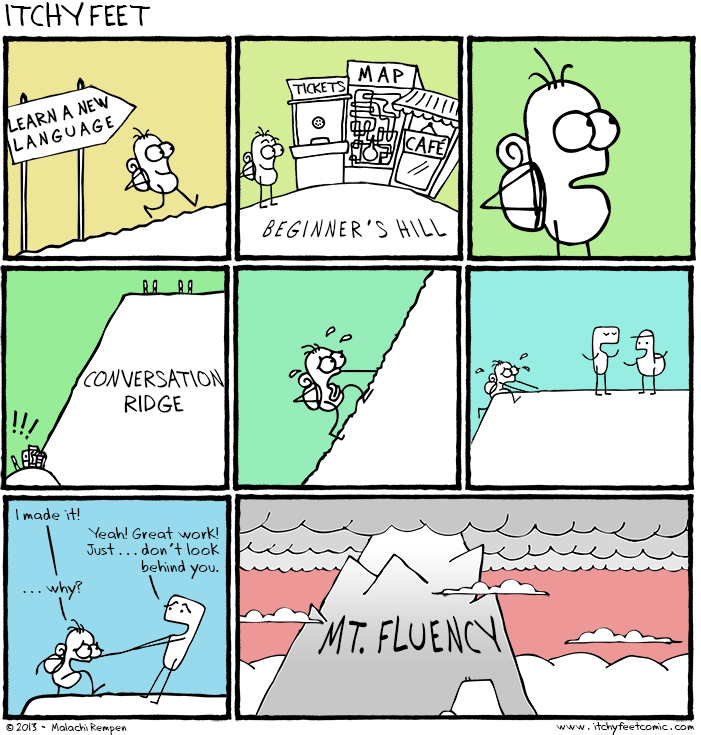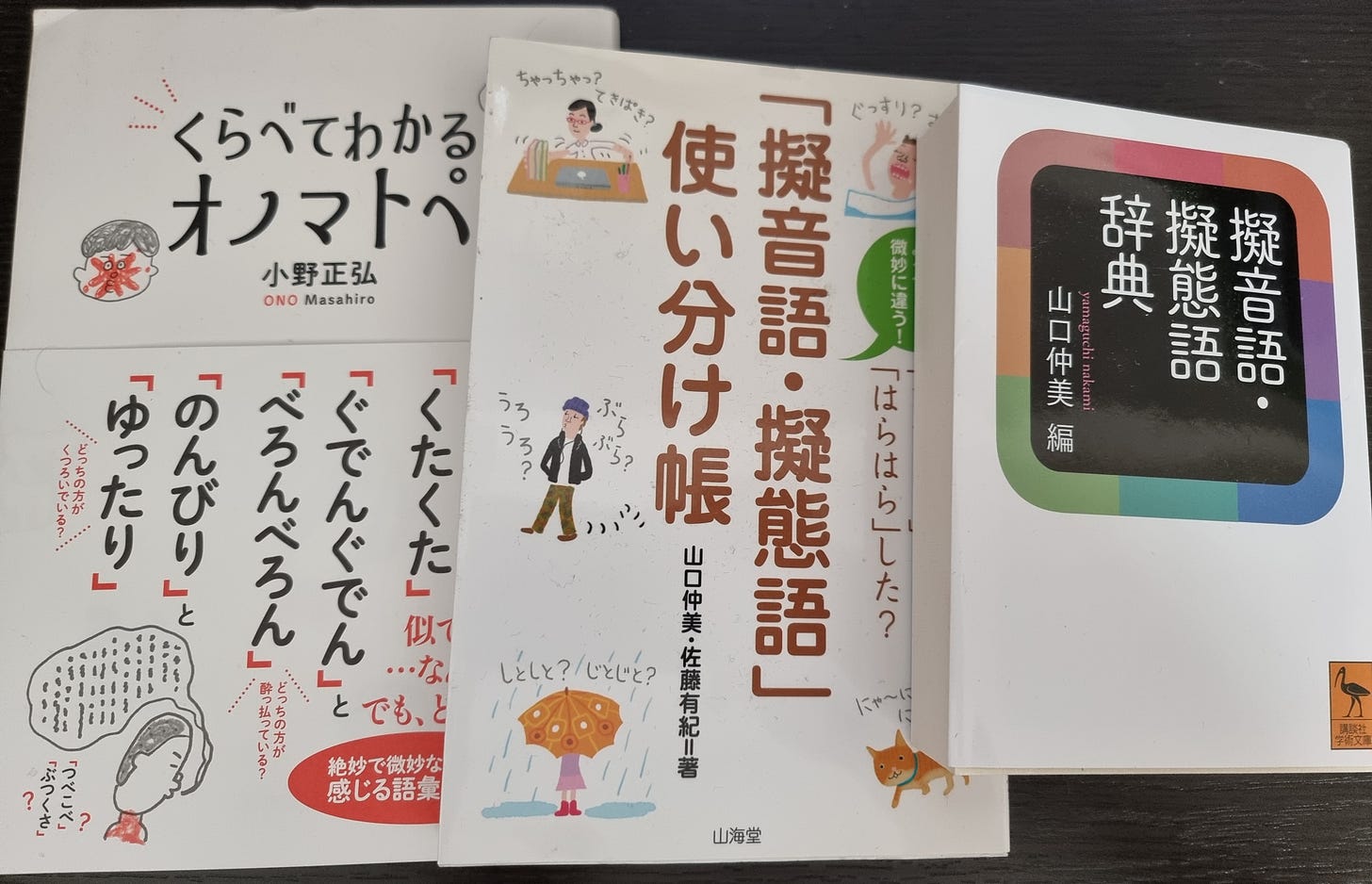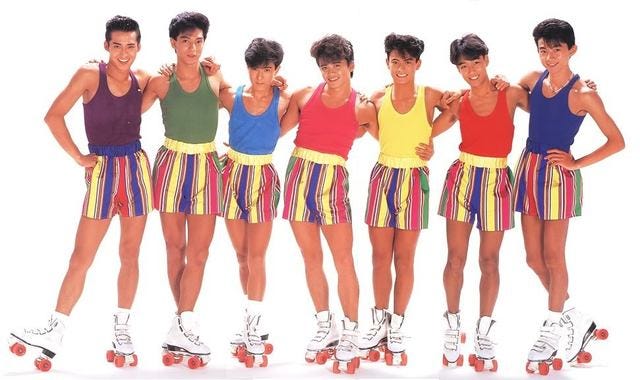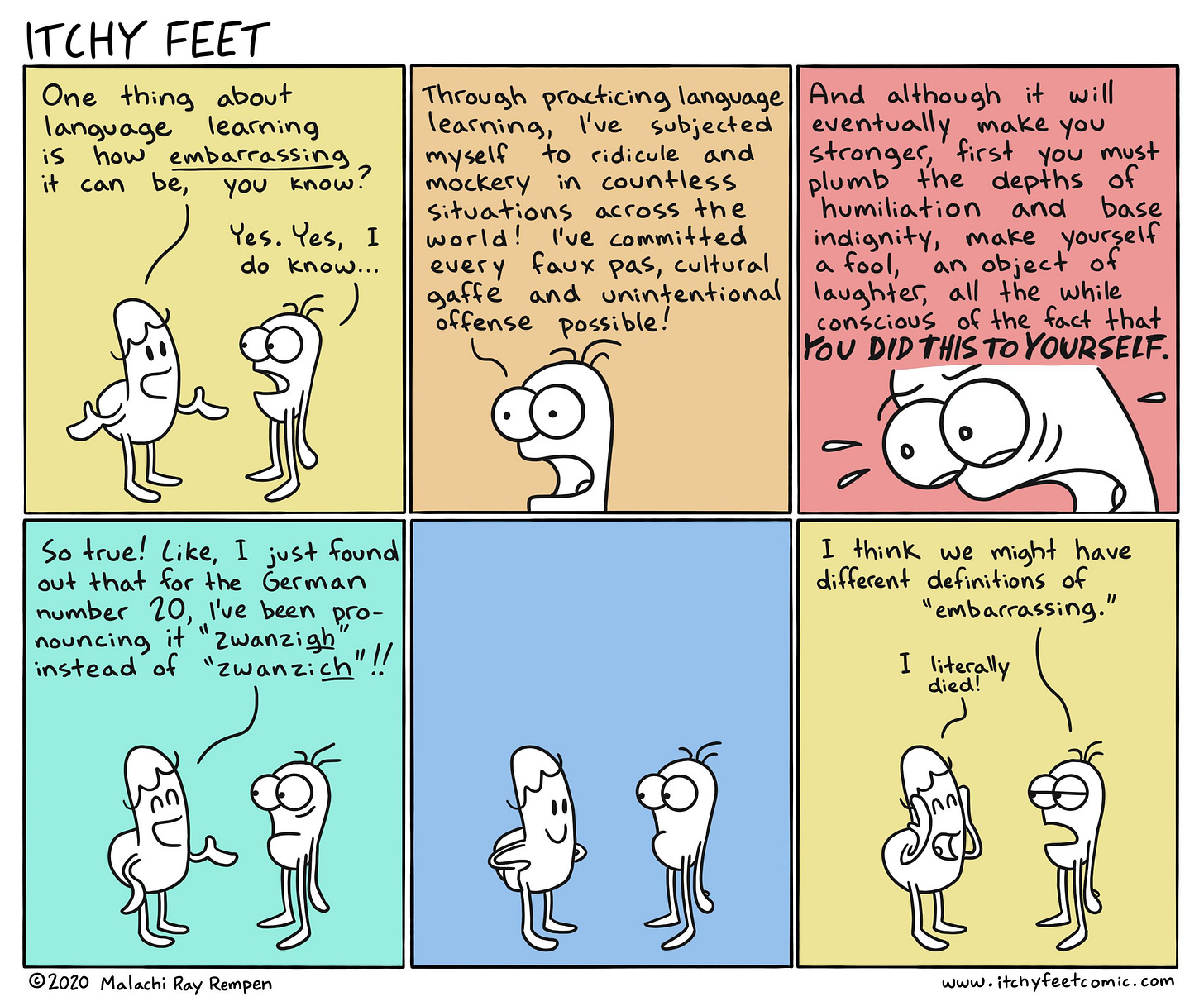The woes of the fluent, but not native
How being really good at a foreign language can make communication harder, not easier

After more than 15 years in Japan, I feel like I get in more misunderstandings than I did a few years in. Intuitively, this shouldn't be the case: my Japanese is definitely better than it was, in pretty much every aspect. Yet there's definitely a trend here, and it bothers me to no end, so I spent way too much time thinking on it and now you get to read about it.
There are, fortunately, some miscommunications I got better at. That includes in particular a better understanding of what people mean when they say stuff, not just the words they're saying. Japanese being a “high context” language, in which a lot of stuff is left unsaid and it's on the listener to fill in the gaps, you're expected to “read the air” (direct translation from the Japanese phrase :空気を読む). That's devilishly hard to do for the average westerner, especially Mediterranean types as we have a relative tendancy to say pretty much everything we think (if not more), loudly and repeatedly; so that’s what we grow up to expect from people in front of us too. The confrontation adverse Japanese, on the other hand, drop euphemism bombs and expect you to take the hint. It can be intonation, a subtle pause, body language; stuff that's cultural code for “I say A but I mean B”. All languages have some amount of that, because that's a thing humans in general do when they communicate I think, but to varying extents. Let me tell you, the western minds is not ready to handle the amount of unspoken information in your average Japanese conversation… Still, practice helps. I’m still failing regularly on this front, but a lot less than I did before. At least I got better at picking up on the signs pointing to me having missed something - while even-more-clueless past me would have just waltzed through completely unaware.
The part I think I got worse at in the process of getting more fluent in Japanese, is the other way around: not being misunderstood. The crux of the matter I believe is this: when someone has a noticeable foreign accent or questionable grammar and they blurt out something weird instead of the sensible thing they meant to, people in front of them go “ah, foreign language and all that, probably not what they meant”. But when someone speaking with native-sounding fluency trips up and something comes out weird instead of the sensible thing they meant to, then people in front go “woa, that dude says weird shit, what’s up with him?”. The better you are are grammar, vocabulary and phonetics, the more likely it is that people will assume you also have all other aspects of communicating in that language and everything that comes with it down pat. There’s a running joke at home about the wife regularly, literally, forgetting I’m not Japanese. I would be flattered and validated for my efforts learning the language and its intricacies, were it not for the fact this has led to so many fights between us I’ve lost count of them.
At the risk of repeating myself, I’m native-sounding fluent. I’m not actually native. I will never be, no matter how many fancy turns of phrases I master or how many kanji and their ethymology I memorize. Even being perfectly bilingual (if there even is such a thing) will never grant anyone the foundational cultural knowledge we pick up in our formative years. I have not studied The Tale of Genji or Hyakunin Isshu or haiku in excruciating detail in school. I didn’t have Home Economics (kateika) classes in middle school where I learned the roles of soy sauce, sake, and mirin as the foundations of cooking at 9 years old. I did not spend my childhood aiming to become some J-drama idol that was dominating popular culture at the time, trying and failing to achieve cool by aping their mannerisms or way of talking. Shit, I don’t even know who that was for men in my generation, maybe キムタク or some such?
I certainly didn’t spend my teens agonizing over how to interpret the meanings behind the many-layered, sometimes intentionally but rarely overtly mean, girl talk of my classmates (that would have included trying to figure out the one I had a crush on, of course). Well, I definitely did some of that, but not in Japanese, and that’s a lifetime of experience picking up on specific clues and nuance I will never be able to catch up on.
I also haven’t spent my youth being taught about but also on the receiving end of, or reprimanded for, endless variations on the usage of levels of politeness and honorifics in the Japanese language. You may have heard there are 4 or 7 levels to that, but that’s complete bullshit, by the way. It’s a whole spectrum of grammar, conjugation, vocabulary and even intonation with opaque, ad-hoc rules so complicated even native young adults struggle with the higher honorifics that need to be used in the workplace. Those I thankfully get a pass on, but then there’s more day-to-day, obvious to natives stuff about how mixing and/or switching between some aspects of casual and neutral language can actually be a mark of derision, disrespect, or anger. Stuff I am pretty much oblivious to, including when I’m doing it myself - without the intent, but with all of the effect.
No matter how many books on the topic I read, neither will I ever have the native Japanese instinct about which of the seemingly infinte amount of onomatopea fits just right to some absurdly specific situation. Did that guy at work refuse our proposal hakkiri or kippari, and using which one of those will make me sound like a douche? Fuck if I know, so I’m about 50% getting it wrong and shooting myself in the foot.

I just don’t have all that background stuff that would let me insert the correct meaning between the lines of surface-level mostly correct grammar. And so I do get it wrong, repeatedly.
At work, that means I routinely find myself coming off as expressing something completely different from my intent. Not only do I not know that I’m doing it, but nobody tells me I’m doing it, because they don’t know either. Because I sound Japanese enough, they just assume that I used this gramatically neutral but culturally charged as angry turn of phrase or intonation because I’m really angry at them, and/or an asshole. And again, confrontation-averse culture, so instead of being like “wait what did you just say to me?” they just go “oh OK”, don’t even flinch (that is, if I even have visual cues to pick up hints from - Zoom meetings do not help there), continue the meeting politely with a nice, formal closing after which their takeaway is “damn this guy’s a dick” and they never return my emails anymore.
Needless to say, correcting stuff you don’t know you’re doing without getting any feedback about it isn’t particularly easy.
Luckily, I do have the wife who (when she does remember I’m not actually Japanese) does give me some of that much needed feedback. It was actually during COVID lockdowns, when we were teleworking next to each other, that she pointed out how I was probably coming off too strong in work meetings sometimes, otherwise I would probably still have no idea to this day. It is with her input that I have devised my newest way of desperately trying to preventively signal my Japanese isn’t actually native, something people seem to have a surprisingly hard time internalizing. There’s probably an element here of my introductory “please excuse my imperfect Japanese and any misunderstands it may cause” or some such being a carefully crafted and rehearsed bit, so it sounds all fancy and correct and also like a very Japanese modest thing to say, so I suspect it only reinforces people’s impression that my Japanese is great and not actually going to cause misunderstandings. Now instead I say “even though I’ve been here long I’m still in the process of learning Japanese”, which somehow seems likelier to get the point across.
The dark side of that is that she still has to put up with it on the daily, not just correcting my interactions with others but also unfortunately being on the receiving end of it. I’m afraid there’s only so many times you can come across as an ass to someone and hurt them, regardless of intention, before they just take it as a truth that you are. My language journey is also a constant fight against that, and so I’ll never stop working on it, but man, it’s hard…






Interesting post once again :)
I think... often the issue stops being about language and it becomes about culture. I intentionally speak german with a stronger accent than what I would normally do, because otherwise people assume I'm german, and things go hilariously wrong. The interesting part is, when I chat in english with a german, because we're in a neutral space, or rather, we're *both outside* of our normal language, there seem to be less misunderstandings and cultural weirdness (these still happen of course, but a lot less).
I think not everyone is the same either. Folks who just dont speak any foreign language seem to not understand as much as someone who has been trying to convey something in a foreign language. I think also some folks are a lot more used to interacting with non-native, and different cultures. They seem to be a lot more attentive to what's going on, and they take a moment to think further when i say or do something they would naturally find weird.
The interesting thing as well is, I think you would probably don't feel at ease if you were back in a french speaking environment for a long time. You've picked too many japanese cultural elements to be franco francais ; heck maybe you felt attracted to Japan because you had some personality traits that make you feel better thete than in your country of origin. I certainly feel that way about germany! As I joklingly tell my friends, I'd rather be the guy with french tendencies in germany than the guy with german tendencies in france! I wonder if there's something similar for you?
From what I heard from natives, many of them find "reading the air" as hard as us gaijin.
The best thing to do, when possible, is to do like me and mainly deal with older Japanese. Apparently, as soon as they hit their mid-to late-60, they lose all their inhibitions and start talking straight, almost like Westerners. I've been to delightful alcohol-free lunch parties where these lovely grandpas and grannies kept slamming each other over politics and other shit. Lovely people, all of them.
PS Fuck onomatopoeia.